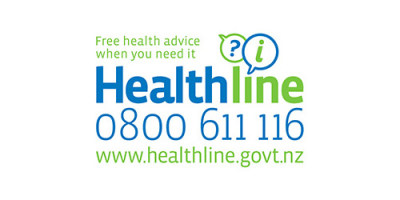World Antimicrobial Awareness Week 2022 - Antibiotic Amnesty in Nelson Marlborough

World Antimicrobial Awareness Week ends tomorrow, and the 2022 campaign is 'Antibiotic Amnesty' - a call for old antibiotics to be returned to the pharmacy in order to reduce antibiotic resistance.
We visited pharmacies around TeWaiharakeke to see how they were promoting the week, and what the community response was.
Antimicrobial resistance (AMR) is a global crisis, slower burning than COVID-19 but potentially as catastrophic.
It is a growing problem in Aotearoa New Zealand and may cost us dearly: longer hospital stays, poorer outcomes from interventions like surgery and cancer-related care, increased mortality and elevated healthcare costs.
2022's Theme is 'Antibiotic Amnesty'
For WAAW 2022, we are joining pharmacists globally to support an 'Antibiotic Amnesty' campaign that can be led by community pharmacy teams to help raise public awareness of antimicrobial resistance and wise use of antibiotics.
Nelson Marlborough's response to the call for amnesty
We visited some community pharmacies around Blenheim to catch up on how the week has gone for them
Brian from Poswillos Pharmacy had posted to the local Marlborough Facebook group 'Cool Cat Chat' on behalf of the pharmacy.
Sharon from Wairau Community Clinic said education about the significance of the issue is key to making change and a difference.
Debbie from Community Care Pharmacy noted that awareness that the best thing for people to do is to bring antibiotics back to a pharmacy was crucial to the campaign.
Patrick from Unichem Springlands said the campaign raised good awareness for the issue and that the pharmacy was now involved with frequent antibiotic reviews at Waterlea Rest Home which was helping with the circulation of unnecessary antibiotics in the community.

Left: Brian from Poswillos Pharmacy and Sharon from Wairau Community Clinic showing their support
Right: Mo and Debbie from Community Care Pharmacy giving the thumbs up for antibiotic amnesty
"The time for action is now" - Dame Juliet Gerrard, the Prime Minister's Chief Science Advisor
Antibiotic Amensty Frequently Asked Questions
Sourced from the Pharmaceutical Society of New Zealand Incorporated
1. What is an ‘antibiotic amnesty’?
An ‘antibiotic amnesty’ is an awareness campaign being run by pharmacies to promote the wise use of antibiotics, including the return of unused antibiotics to the pharmacy for safe disposal to help prevent antibiotic resistance.
2. What is antibiotic resistance?
Antibiotics are important medicines for treating bacterial infections but the more they are used; the more bacteria adapt and find new ways to survive which means they become ‘resistant’ to antibiotics. Using antibiotics when they’re not needed drives bacteria to become more resistant.
3. Why should I care about antibiotic resistance?
Antibiotic resistance is a major concern because it means some infections will become more difficult, and sometimes impossible, to treat. Medical procedures such as surgery and cancer treatments could become extremely difficult, or impossible, as they rely on antibiotics to manage the risk of infection.
Bacteria that cause infections like pneumonia, gonorrhoea and tuberculosis have all started developing antibiotic resistance. Antibiotic resistance is increasing in New Zealand and around the world. It can affect anyone of any age. Antibiotic resistance can also affect your pets.
4. What can I do to help prevent antibiotic resistance?
The following are some key things everyone can do to help prevent antibiotic resistance:
- Preventing infections and their spread helps stop antibiotic resistance by reducing the need for antibiotics - regularly wash your hands and keep up to date with vaccinations.
- Remember the 3Cs when cooking at home: Clean, Cook, and Chill to prevent you and your family from getting food poisoning.
- If your health professional says you don’t need antibiotics, ask them about other ways to relieve your symptoms.
- If antibiotics are prescribed for you, follow your health professional’s advice on when and how to take them.
- Only take antibiotics if they are prescribed for you, don’t use or share leftover antibiotics.
- Bring any unused antibiotics back to your pharmacy so they are disposed of safely. For more information refer to the Ministry of Health website www.health.govt.nz/antibioticresistance
5. What is the risk of keeping antibiotics for taking at a later date?
Antibiotics should only be used when advised by a health professional for your current illness. This is for many reasons, including:
- not all infections are caused by bacteria, so antibiotics may not be effective for your next illness different infections may need different treatment regimens, even though you might have similar symptoms
- if your condition is caused by a bacteria, to treat it effectively you need to get the right antibiotic, at the right dose, for the right duration.
Using antibiotics when they are not needed or taking the wrong antibiotic exposes bacteria to antibiotics unnecessarily, which encourages antibiotic resistance.
Another thing to keep in mind is that just like food, antibiotics go off. Keeping leftover antibiotics may lead you to take expired medications, which means they may not work when you need them or may even make you feel more ill. Liquid antibiotics often require refrigeration and expire quickly; other antibiotics may not be labelled with a specific expiry date.
6. What is the risk of sharing antibiotics with others?
The antibiotics you were prescribed may not work for your family member, friend or neighbour’s illness.
They might:
- not need antibiotics at all
- need a different dose or type of antibiotic
- have an allergy, another condition or be taking other medications that mean your antibiotics are not suitable. Using antibiotics when they are not needed or taking the wrong antibiotic exposes bacteria to antibiotics unnecessarily, which encourages antibiotic resistance.
7. What is the risk of putting antibiotics down the toilet or sink?
There is a risk that antibiotics poured down the sink or flushed down the toilet may pass through treatment systems and enter rivers, lakes and even drinking water supplies. In homes that use septic tanks, antibiotics flushed down the toilet could leach into the ground and seep into groundwater. Antibiotics that get into the environment may drive bacteria to become more resistant. Appropriate disposal of antibiotics by the pharmacy minimises this risk.
8. Where does the pharmacy dispose of the antibiotics?
Unused medicines taken to pharmacies are disposed of by specialist waste disposal companies according to the New Zealand Standard for the management of healthcare waste (NZS 4304:2002).
9. Do I really need to take all my antibiotics?
Often you will feel better before your course of antibiotics is finished and more studies are showing that shorter courses of antibiotics are just as effective as longer courses. However, treatment guidelines are being updated with this new information so your prescriber will be taking this into account when they decide on your treatment.
For some infections, it is important to take antibiotics for a while after you feel better to make sure the infection is gone, so it is always best to complete your antibiotics as advised the prescriber. If in doubt, talk to your prescriber about the shortest course that would be best for you.
Click here to visit the Ministry of Health website for more information and resources






